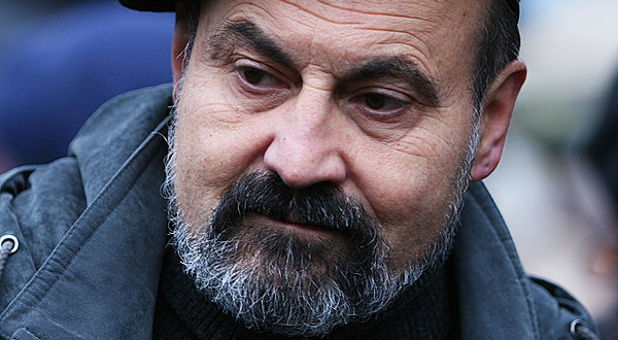Czech Priest Wins $1.83 Million Templeton Prize for Theology of Paradox
A Czech Catholic priest whose theology of paradox invites believers and atheists to dialogue has won the 2014 Templeton Prize, worth $1.83 million, for his work affirming the spiritual dimension of life.
Tomáš Halík, who worked underground to promote democracy and morality before communism fell in Czechoslovakia in 1989, has “continuously opened vistas that advance humankind,” the U.S.-based John Templeton Foundation said on Thursday in announcing the prize.
The award is one of the world’s richest, worth more than the $1.2 million the Nobel Prize committee paid to its 2013 laureates. It honors a person who has contributed to “affirming life’s spiritual dimension” through insights, discoveries or practical work.
Previous winners include the Dalai Lama, South Africa’s Archbishop Desmond Tutu and British astrophysicist Martin Rees.
Since 1989, Halík has pursued his mission of dialogue with other believers and non-believers through his Czech Christian Academy, his work as chaplain at Prague’s Charles University and his 17 books translated into 18 languages.
“The chief task of faith and theology is to teach the art of living amid life’s paradoxes and the courage to enter the cloud of unknowing,” he said in a speech in London where the Foundation announced the prize.
Most Atheist Country
In his speech, Halík, 65, who was ordained secretly in East Germany in 1978, thanked his philosophy and theology professors, “many of whom spent long years in communist prison camps and had very little opportunity to write or publish.”
With official repression of faith boosted after the 1968 Soviet invasion of Czechoslovakia, even his mother did not know about his study for the priesthood.
Halík told Reuters in an interview this week before the prize was publicly announced that he would use the money to develop his work on dialogue with other faiths and atheists, especially at the Academic Parish next to Prague’s famous Charles Bridge, which hosts a wide range of cultural and religious activities.
“In this parish in these past 25 years, I have baptized more than 1,000 young people,” said the priest, who also worked closely with Vaclav Havel, the first post-communist president in Prague, and Polish-born Pope John Paul II.
“This year, we have 105 catechumens (candidates for baptism)—and this in what is supposed to be the most atheist country in the world,” he said.
A 2012 Pew Research Forum survey showed the Czech Republic had the world’s highest percentage of religiously unaffiliated people at 76 percent, ahead of North Korea (71 percent). China has the most non-religious people but they make up only 52 percent of the huge population.
Halík, a trained psychotherapist, was barred from teaching under communism as an “enemy of the regime.” He is now a professor of the sociology of religion at Charles University and frequently lectures abroad.
Seekers and Dwellers
A fluent English speaker, he came from a secular family and became a Catholic under the influence of English Catholic writers such as G.K. Chesterton and Graham Greene, whose novels he has used to explain Christian thinking to non-believers.
Halík said he believed life was made of paradoxes and the main dividing line in spiritual questions was not between believers and non-believers, but between what he called “seekers and dwellers.”
Explaining his theological approach, he said seekers look for deeper meaning in life, either through religion or other spiritual quests, while dwellers are firmly anchored in organized religion or militant atheism.
One paradox is that even atheists can be seekers if they look for something more in life than material well-being while religious fundamentalists can be as rigid in their thinking as the most vociferous deniers of anything spiritual.
“In today’s world, there are two extremes—religious fundamentalism and militant atheism,” he said. Even atheists he meets tell him they believe there is “something else” to life beyond what empirical science observes.
“This ‘somethingness’ is the most widespread religion in our country,” he said. “I would tell atheists they are not wrong, but have no patience with the silence of God.”
Sometimes, he said, atheists have a distorted image of God that blinds them to the God who helps believers deal with the paradoxes and mysteries of life.
“When an atheist tells me his image of God, I say, ‘thank God you don’t believe in him. I don’t believe in him either,” he said.
Editing by Sonya Hepinstall
© 2014 Thomson Reuters. All rights reserved.















































